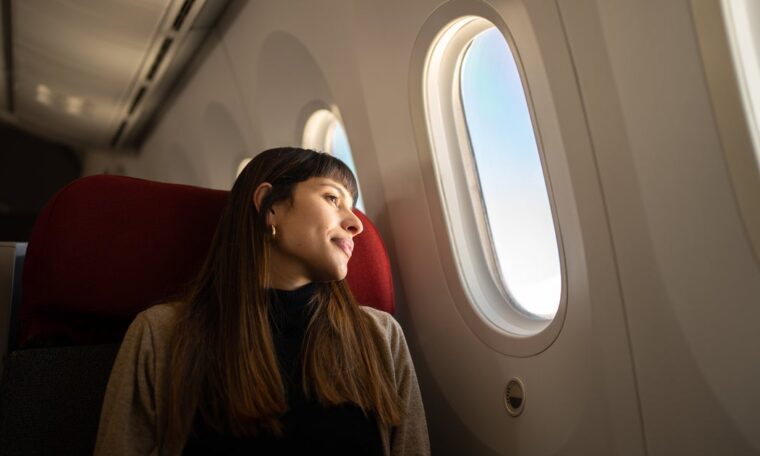
Standing in Cancún’s terminal with my boarding pass for a 90-minute flight to Belize, I had no idea I was about to regret choosing the cheapest option.
Instead of a quick hop, the trip turned into a 14-hour slog through two additional countries and three different aircraft. Mechanical issues forced a diversion to Honduras, where passengers waited on the sweltering tarmac without food, water or information. A second swap and a detour to Guatemala further extended the delay. By the time I landed in Belize, I was dehydrated and drained. The small fare saving had cost me time and sleep, and caused a lot of frustration.
Low-cost carriers have multiplied in recent years, opening new routes at unprecedented prices. But that growth raises a crucial question: How can travelers identify reliable operators before booking?
Industry experts suggest focusing on operational details rather than just price when choosing budget carriers.
The Factors That Determine Your Travel Fate
George Novak, president and CEO of the National Air Carrier Association and a former FAA attorney, said most delays and cancellations come from “inadequate aircraft and personnel resources at the affected airport.”
“If a carrier only flies one aircraft daily into an airport, it is much harder to provide a replacement or quickly move passengers onto another flight,” Novak said. “Carriers with larger fleets and hubs have far more flexibility to handle disruptions.”
Budget airlines operate point-to-point routes without the hub networks that allow larger airlines to reroute passengers. Novak calls cancellations a “minimal risk,” but when that risk becomes real, travelers may be stranded with no alternatives.
Crew scheduling makes the problem worse. “As with having a larger fleet, the larger crew base you have, the more likely you will be able to have aircraft crews on standby for re-positioning to handle those rare instances when crews ‘time out’ and cannot legally operate,” Novak explained.
This isn’t a safety issue. Aviation authorities enforce identical standards across all airlines. The difference is in the backup options when something goes wrong.
What happens after those delays or cancellations also reveals the differences between airlines. Evan Oshan, principal at Oshan & Associates, P.C., who has spent two decades working on aviation cases, recently handled two clients with weather cancellations on the same route and same day.
One “passenger got rebooked within four hours through their app, albeit on a flight the next day. [The airline] provided hotel discount codes and meal vouchers proactively,” Oshan said.
The passenger who flew a different budget airline? “More than six hours on hold, no app rebooking option, and eventually forced to buy a new ticket on another airline for triple the price. [The airline] offered a refund only, no rebooking assistance, no accommodations.”
“No customer service phone number listed on their website, only email or chat, is a major red flag.”
– Evan Oshan, principal at Oshan & Associates, P.C.
The difference, Oshan noted, “comes down to infrastructure,” specifically when it comes to an airline’s app. Check to see if your airline’s app is self-service or if you can easily reach a customer service agent.
Travel content creator Jessica Kameko Rooks, known to her followers as “the queen of surviving budget airlines,” has seen this divide firsthand. “Southwest is usually the easiest to deal with because they are flexible about changes and keep you updated along the way. JetBlue does a solid job, too, since their app and text alerts often give you updates before you even start to worry.”
“On the other hand, [other airlines] can be a real headache,” she said. “They push passengers to use self-service apps, and it’s almost impossible to reach real customer support. Most of the time, there’s no call center, and you’re stuck sending emails or dealing with a bot that rarely solves the problem.”
FG Trade via Getty Images
There are positives and potential negatives when booking on budget airlines.
Red Flags To Look For When Booking Airlines And How To Book Wisely
Oshan identified three warning signs that predict trouble with budget carriers. First, check for missing phone support. “No customer service phone number listed on their website, only email or chat, is a major red flag,” Oshan warned. When disruptions happen, automated systems or AI bots rarely handle complex rebooking scenarios.
Second, review complaint patterns. An “abnormally high number of recent Department of Transportation complaints relative to an airline’s size” points to systemic operational issues, Oshan explained.
Third, scrutinize the fee structure. When base fares appear low but mandatory add-ons like seat selection or carry-ons nearly double the price, it signals an airline prioritizing revenue over operations.
“In the world of lower-cost airlines, efficiency (often meaning fewer employees) is frequently the key to profitability and economic survival,” Novak said. “That doesn’t mean safety is compromised, but it can create an overload of issues for smaller teams.”
You can do a little research yourself and plan your trip around your circumstances. Timing is critical. Summer thunderstorms hit budget carriers hardest because they have few backup aircraft, while December holidays create similar problems when carriers “max out capacity with no wiggle room for weather delays,” according to Oshan.
Dean Van Es, CEO of Fast Cover Travel Insurance, sees these constraints reflected in travel insurance claim patterns. “Smaller budget airlines generally have fewer aircraft and more limited route networks, making it harder to recover when things don’t go as planned,” he explained. “If a single plane is delayed or taken out of service, it can disrupt multiple flights, leading to longer delays and more cancellations.”
Successfully navigating budget airlines requires informed decision-making before you purchase. Novak recommended checking online for which carriers frequently cancel flights, strand passengers or lose luggage.
He advised using official sources, like Department of Transportation or aviation authority databases, rather than just online reviews, which tend to be negative.
Rooks takes a practical approach: “Think about how much flexibility you have. If you need to fly at a very specific time, sometimes you just have to go with whichever airline offers that option, even if it’s not your favorite.”
She also recommended calculating true costs: “If you’re bringing a lot of luggage, budget airlines may not be worth it. The extra fees for carry-ons and checked bags can add up fast. Sometimes it actually costs the same, or even less, to book with a non-budget airline that includes bags, bigger seats, and a more comfortable experience.”
“Allow extra time for check-in and security to avoid rushing or missing your flight,” Rooks said.
20 Years OfFreeJournalism
Your SupportFuelsOur Mission
Your SupportFuelsOur Mission
For two decades, HuffPost has been fearless, unflinching, and relentless in pursuit of the truth. Support our mission to keep us around for the next 20 — we can’t do this without you.
We remain committed to providing you with the unflinching, fact-based journalism everyone deserves.
Thank you again for your support along the way. We’re truly grateful for readers like you! Your initial support helped get us here and bolstered our newsroom, which kept us strong during uncertain times. Now as we continue, we need your help more than ever. We hope you will join us once again.
We remain committed to providing you with the unflinching, fact-based journalism everyone deserves.
Thank you again for your support along the way. We’re truly grateful for readers like you! Your initial support helped get us here and bolstered our newsroom, which kept us strong during uncertain times. Now as we continue, we need your help more than ever. We hope you will join us once again.
Support HuffPost
Already contributed? Log in to hide these messages.
Budget airlines make air travel more accessible, but they operate under constraints that full-service carriers don’t face. Knowing these limitations before booking can prevent frustration and long delays.
It really comes down to a cost-benefit and risk analysis,” Novak emphasized. “Not safety risk, but operational risk ― whether a carrier is likely to have significant delays or cancellations at your specific airports.”
That research might save you from your own four-country, 14-hour ordeal.
Source link
CHECK OUT: Top Travel Destinations
READ MORE: Travel News



